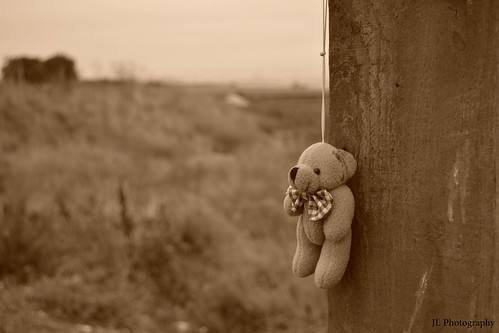The Lonely Years
When my son was in middle school, his best friend moved away and he struggled to make new friends in a less than welcoming environment. It was heartbreaking to see his eyes well up with tears from the lunches and recesses he often spent alone, and I wished I could take this pain away. Yet, I knew he must learn to embrace loneliness so he wouldn’t chase anything or anyone just to avoid being alone. I decided to share about times when I felt all alone so he didn’t feel so isolated in his loneliness. As a family, we would discuss what became known as the “lonely years”. We each shared how we responded to the ache of isolation, normalized loneliness and reframed it as we shared about the lessons learned from being alone. It was healing for me as I visited those painful, isolating times in my life, and observed the character development in me, and the empathy it developed for others.
As humans, one of our greatest longings is to be chosen and desired by someone. To not have it, is one of our greatest fears. To be left alone, discarded, rejected, unwanted, unseen, and unheard for long periods of time can be devastating and life alternating. Repeatedly, throughout Scripture, we are reminded of how God led his leaders, prophets, and ministers through a period of loneliness and isolation. Even Jesus experienced isolating times as he was tempted in the wilderness and pursuing his calling on earth. Most leaders will experience periods of loneliness: “95% of all leaders go through periods of isolation.”[1]
The two main types of isolation are voluntary and involuntary.[2] Jonah is one of the most dramatic examples of both to me. Because he refused the calling of God, he was involuntarily forced into isolation as he spent time being digested in the belly of a whale. When he was deposited onto land, he fulfilled his purpose by evangelizing to the lost people of Nineveh. Finally, the story closes with Jonah voluntarily isolating himself under a tree, where he remains sulking because of God’s response to save the Ninevites. In his isolation, whether voluntarily or involuntarily, God showed up to relate to him through deliverance or by talking with him. God wants to meet us in our isolation, so are we ever truly alone? Psalms 23 reminds us of the Good Shepherd we serve as he walks through the valley of death with us, guiding and protecting us.
As leaders, it is likely we will experience isolation and it is valuable to remember these six points[3] when confronted with “the lonely years”:
- Be honest and share our vulnerable feelings of isolation and loneliness. Keeping this hidden from others gives fertile ground for shame and fear to grow. David in the Psalms was a good example of calling out to God in complete transparency with how he felt. He honestly expressed frustration, pain, uncertainty, and confidence in God, as he unabashedly expressed his emotions. “Honesty means wrestling and struggling with God during isolation.”[4] The honest wrestling can create more than a real relationship with God and a reality others can identify with, but it can also ignite a revolution. Martin Luther demonstrated this with his honest admission of doubt and complaints with the Catholic church as “He sets in motion a conflict between conscience and creed that will run, in various forms, into the late modern era.”[5] Honest admissions are healing, bonding, and transforming.
- Remember what you have done as a leader, the works God has accomplished through you, and who God is when you feel isolated and alone. The psychological term on this is “integration”, where one integrates the good with the bad, providing emotional stability. It can be dangerous to remember only the bad, forgetting the fruitful times, as one can become consumed with the heaviness of isolation. In the book Global Evangelism, we are reminded of how big God is with the evolution of his church to be a whopping 2 billion people worldwide.[6]
- Have hope that the “isolation will end.”[7] The isolation will not last forever, even though it feels like it’s all you’ve known. Hoping for something beyond your isolation is critical for stability. Many times we need to rely on others to bring messages of hope when the isolation period seems too long and dark. Martin Luther King’s “I have a Dream” speech brought hope to a people plagued with isolation and segregation. Giving hope to those in isolation can be a God-send to those oppressed with isolation.
- Get a mentor who is discerning, empathetic and caring for your isolation time. It reminds me of my mentor from earlier years who when I shared spiritual struggles, responded with, “Good, it sounds like you are wrestling with God.” With that statement, I felt accepted, validated, and normal as she also reminded me of the nature of God and his faithfulness to me. This kept me hopeful and grounded as I wrestled through my faith.
- Listen to the voice of God by practicing centering prayer, memorize hopeful scripture, and develop meditation practices. When we are in an isolating time, the silence can be deafening as we wonder if isolation is our eternal domain. Listening to God’s voice in the stillness of the morning, dreams, and in His word reminds us we are not alone.
- Embrace isolation by choosing to stay in it until God brings one out, for “an early exit from isolation circumvents the transformation God brings during isolation.”[8] This is much easier said than done. Yet, having gone through “the lonely years”, I have found value in embracing the isolation that leads to character and spiritual development.
[1] Shelley G Trebesch, Isolation: A Place of Transformation in the Life of a Leader, (Altadena, CA: Barnabas Publishers, 1997), 56.
[2] Ibid., 29.
[3] Ibid., 57-64.
[4] Ibid., 57.
[5] Dominic Erdozain, The Soul of Doubt: The Religious Roots of Unbelief from Luther to Marx, (Oxford University Press, 2015), 266-267, Kindle.
[6] Donald Lewis and Richard Pierard, Global Evangelicalism: Theology, History & Culture in Regional Perspective, (Downers Grove, IL: InterVarsity Press, 2014), 17.
[7] Shelley G Trebesch, Isolation, 61.
[8] Ibid., 64.
6 responses to “The Lonely Years”
Leave a Reply
You must be logged in to post a comment.


Jennifer
I love the story of Jonah. I find myself complaining about a direction God is sending me. I use the famous term “WHY?”. I made a point last year to question less and move more.
I enjoyed this book. I believe it is one that needs to be read by new converts so that they can understand what is transpiring in their lives.
Jennifer, thank you!
Thank you, Jen. I found the book really helpful, too. However, I think it was a bit optimistic. As you say, enduring the isolation process is “much easier said than done.” Somehow in Shelley’s examples the really tough part got glossed over for me.
“Psalms 23 reminds us of the Good Shepherd we serve as he walks through the valley of death with us, guiding and protecting us.”
That reminds me of a professor who said that the really amazing part of Psalm 23 was “You prepare a table before me in the presence of my enemies.” So even in the really hard parts, as you say, God is with us. What a blessing.
I teared up as I read about your son, Jennifer! My husband and I are preparing for our best friends to move away and it is breaking our hearts. I guess we are never to old to feel that loss, eh?
I appreciate you reiterating the points about the “lonely years.” One of the things I would change in Trebesch’s list here is that I would highly recommend a Spiritual Director over a mentor. I love that your mentor validated your wrestling! It sound like they had some SD training. I have had both during the darkness, and find that my SD is able to listen with or for me when I am struggling to hear the Spirit. My mentor has given me steps and tools to follow and encourages me, but my SD helps me explore what I am feeling about God because that’s what she’s trained to do. Maybe part of the darkness is that we learn to amass a team of people to walk with us in a way we never did without it!
First of all, that hanging teddy bear is very disturbing. 🙂
As someone who has repeatedly been on the leaving side, I would affirm that it’s often even harder for those friends we leave behind. It’s incredibly difficult to say goodbye, to move to a new place, and know no one, and everyone already has their friends. But in the midst of that, there seems to be permission to grieve what I’ve left, and people recognize the challenge. For those who are left behind though, there doesn’t seem to be permission to grieve a lost friend.
I think what was missing substantially in Trebesch’s text was the suggestion that Spirit-filled community can potentially alleviate the emptiness of dry times. She did mention mentors, but I don’t remember a theology of rich community. For me, that has often been what pulls me out of the desert.
Jen great post (as always)! Yes I think those six points are important to keep in mind in times of isolation. Expecially when it is involuntary, being able to remember what you have done as a leader can definitely help when processing painful emotions. I think most people can relate to your son’s story. Thank you for sharing it with us!